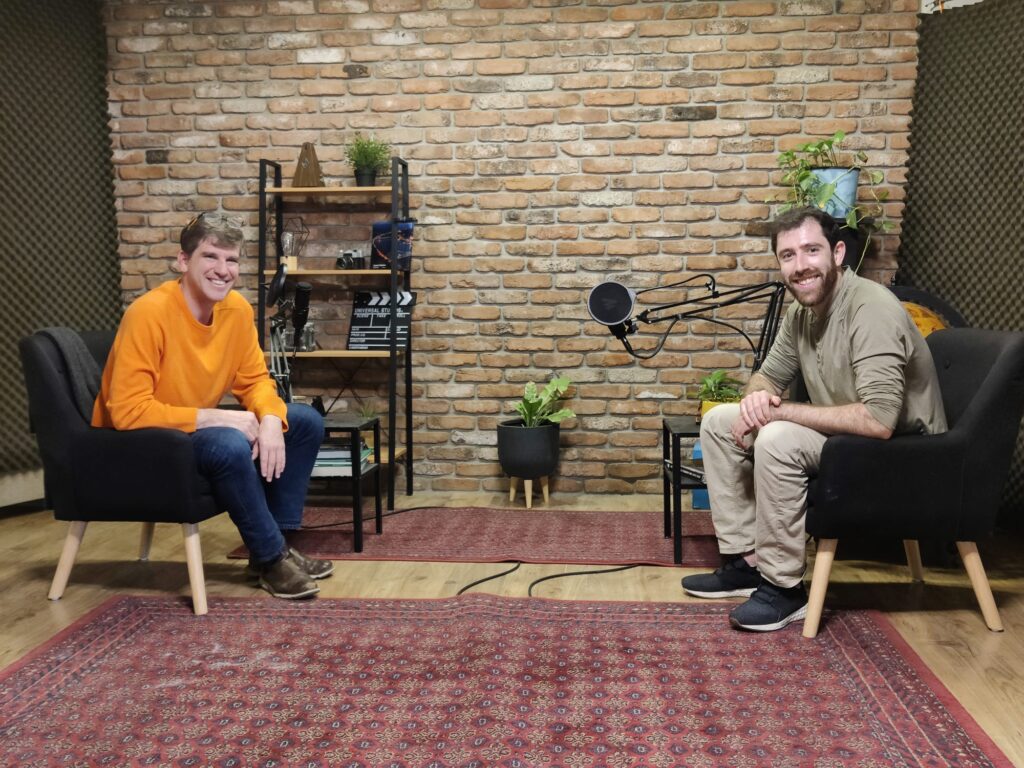Aleph VC’s Michael Eisenberg is a force to be reckoned with in the world of high-tech. As a partner at Aleph VC, a venture capital firm based in Israel, Michael has been instrumental in funding and supporting companies such as Waze, the popular navigation application many of us know, which was acquired by Google. But it’s not just technology startups that have caught his attention – he’s also focused on revolutionizing the agricultural industry in Israel, with hopes of wider global change.

Listen to the Episode Now on Spotify!
Listen to the Episode Now on Apple Music!
Revolutionizing Agriculture in Israel
Farming has been an essential aspect of human existence since the dawn of civilization, but in recent years, the farming population, those actually responsible for our food supply, has been decreasing worldwide. The United Nations forecasts a potential crisis in food production in the upcoming decades if this issue is not addressed. Recognizing this, Michael Eisenberg decided to take action. He joined the organization known as “Hashomer Hahadash”, The New Guard, over a decade ago to promote agriculture as an industry by reaching young and innovative farmers who wish to inject a fresh, new energy into the farming population.
With a recent initiative, he hopes to redefine agriculture in the mind of young people and keep Israel and international partners in the right path to adapt to the changes in agriculture that we are already seeing. As he explained in his recent episode with High Tech on the Low, “HaShomer HaChadash is an organization that trains young adults to be farmers, it’s an agricultural training program, but it’s also a social enterprise that takes care of the land.” Through this organization, Eisenberg is working to bring innovative, sustainable farming practices to Israel, with the goal of creating a more efficient, self-sustaining, and profitable agricultural industry.
Exporting Innovation
The innovations being developed in Israel’s agricultural industry can serve as a model for other countries looking to improve their own farming industries. As Eisenberg points out, “Israel is a small country, but it’s a leader in agriculture, we have a lot of technology, we have a lot of know-how, and we can export this know-how to other countries.” The adoption of innovative and sustainable farming practices is critical for agriculture, on a global scale. Innovations such as precision agriculture and the use of drones can greatly improve the efficiency and productivity of farming worldwide, thus addressing the impending agricultural crisis.
Moreover, produce and foods previously considered impossible to grow in a specific region are now making a comeback. Michael brings up the example of an Israeli company growing vanilla in the Israeli climate, which was previously thought to be impossible and exclusive to countries only like Madagascar. Flipping traditional agriculture on its head is proving to be a major way for high tech to play a pivotal role in agricultural developments.
High Tech and Low Tech
Eisenberg’s work with Aleph VC and HaShomer HaChadash is a prime example of how technology can change an industry. Michael explains that “technology is not only about software and hardware, technology is also about changing the way we do things, and agriculture is a perfect example of how technology can change an industry.” His work serves as a reminder that high-tech is often about finding innovative solutions to improve industries and make a positive impact on society.
Michael Eisenberg’s work in revolutionizing agriculture in Israel and international partnerships that have come from his agricultural initiative are a shining example of how technology can be used to address the impending agricultural crisis.
Listen to the Episode Now on Spotify!
Listen to the Episode Now on Apple Music!





















